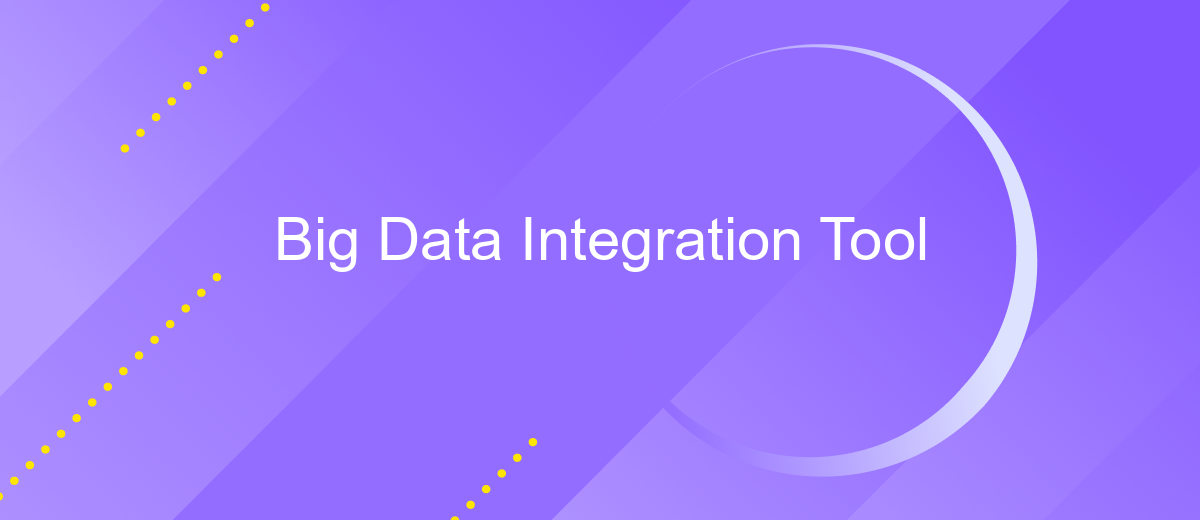Big Data Integration Tool
In today's data-driven world, the ability to seamlessly integrate diverse data sources is crucial for informed decision-making. Big Data Integration Tools offer powerful solutions to unify disparate data streams, ensuring consistency, accuracy, and accessibility. This article delves into the key features, benefits, and best practices for leveraging these tools to enhance your organization's data strategy and drive meaningful insights.
Introduction
Big Data Integration Tools are essential in today's data-driven world, enabling businesses to efficiently combine data from various sources for comprehensive analysis. These tools streamline the process of data integration, ensuring that information from disparate systems can be unified and leveraged for better decision-making.
- Automated data extraction
- Real-time data synchronization
- Scalability to handle large volumes of data
- Support for various data formats and sources
- Enhanced data quality and consistency
One such tool is ApiX-Drive, which simplifies the integration process by providing a user-friendly interface for setting up data connections without the need for coding. ApiX-Drive supports a wide range of applications and services, allowing businesses to automate workflows and ensure seamless data flow between platforms. This capability is crucial for maintaining accurate and up-to-date data across all business operations.
Features

Big Data Integration Tool offers a comprehensive suite of features designed to streamline and enhance your data management processes. One of the standout features is its ability to seamlessly connect with a wide array of data sources, including databases, cloud services, and APIs. This ensures that you can easily consolidate data from multiple platforms into a single, unified view. The tool also supports real-time data integration, allowing for up-to-the-minute insights and decision-making capabilities.
Another key feature is the user-friendly interface that simplifies the setup and management of data integrations. With services like ApiX-Drive, users can automate workflows without requiring extensive technical knowledge. This service provides pre-configured templates and an intuitive drag-and-drop interface, making it easy to set up complex data pipelines. Additionally, the tool includes robust security measures to protect sensitive data, ensuring compliance with industry standards and regulations. Overall, Big Data Integration Tool combines ease of use with powerful functionality to meet the diverse needs of modern data-driven organizations.
Benefits

Integrating big data tools into your business processes offers numerous advantages that can significantly enhance operational efficiency and decision-making. By leveraging a comprehensive big data integration tool, organizations can seamlessly combine disparate data sources into a unified system, providing a holistic view of their data landscape.
Key benefits include:
- Improved Data Quality: Integration tools ensure that data from various sources is consistent, accurate, and up-to-date.
- Enhanced Decision-Making: With centralized and reliable data, businesses can make informed decisions swiftly.
- Cost Efficiency: Automating data integration reduces the need for manual data handling, saving time and resources.
- Scalability: These tools can handle large volumes of data, making them suitable for growing businesses.
- Real-Time Data Access: Tools like ApiX-Drive enable real-time data synchronization, ensuring that your data is always current.
By adopting a robust big data integration tool, companies can streamline their data management processes, gain deeper insights, and ultimately drive business growth. Tools such as ApiX-Drive facilitate easy integration and automation, allowing businesses to focus on strategic initiatives rather than data wrangling.
Case Studies

In recent years, companies across various sectors have leveraged Big Data Integration Tools to streamline their operations and make data-driven decisions. One such example is a retail giant that used these tools to integrate data from multiple sources, including online sales, in-store transactions, and customer feedback, to gain a comprehensive view of their business.
Another notable case involves a healthcare provider that utilized Big Data Integration Tools to merge patient records from different departments. This enabled them to deliver more personalized and timely care, significantly improving patient outcomes and operational efficiency.
- A financial institution integrating real-time transaction data to detect fraud more effectively.
- A logistics company optimizing delivery routes by combining traffic data, weather conditions, and vehicle performance metrics.
- An educational institution analyzing student performance data to tailor learning experiences and improve retention rates.
These case studies highlight the transformative impact of Big Data Integration Tools across various industries. Tools like ApiX-Drive facilitate seamless data integration, enabling businesses to harness the full potential of their data for strategic decision-making and operational improvements.


Conclusion
The integration of Big Data tools is pivotal for organizations aiming to harness the full potential of their data assets. By employing advanced integration solutions, businesses can seamlessly consolidate disparate data sources, enabling more accurate and comprehensive analytics. This not only enhances decision-making processes but also drives operational efficiency and innovation across various sectors.
One such tool that facilitates seamless data integration is ApiX-Drive. It offers a user-friendly platform that allows businesses to automate data workflows without the need for extensive technical expertise. By leveraging ApiX-Drive, organizations can streamline their data integration processes, ensuring real-time data synchronization and reducing the risk of errors. As a result, businesses can focus on deriving actionable insights from their integrated data, fostering a data-driven culture that supports growth and competitiveness in the digital age.
FAQ
What is a Big Data Integration Tool?
How does a Big Data Integration Tool work?
What are the benefits of using a Big Data Integration Tool?
Can I automate the data integration process?
What should I consider when choosing a Big Data Integration Tool?
Time is the most valuable resource for business today. Almost half of it is wasted on routine tasks. Your employees are constantly forced to perform monotonous tasks that are difficult to classify as important and specialized. You can leave everything as it is by hiring additional employees, or you can automate most of the business processes using the ApiX-Drive online connector to get rid of unnecessary time and money expenses once and for all. The choice is yours!

